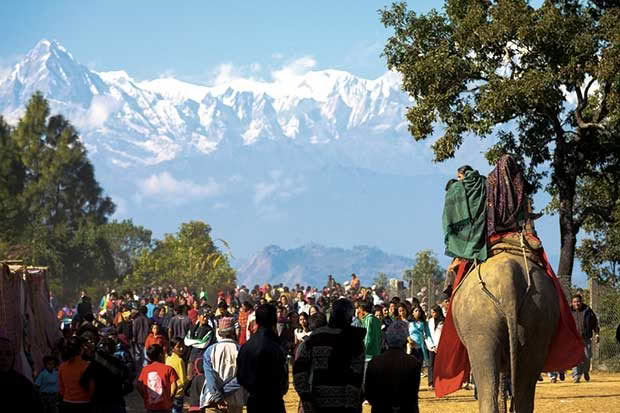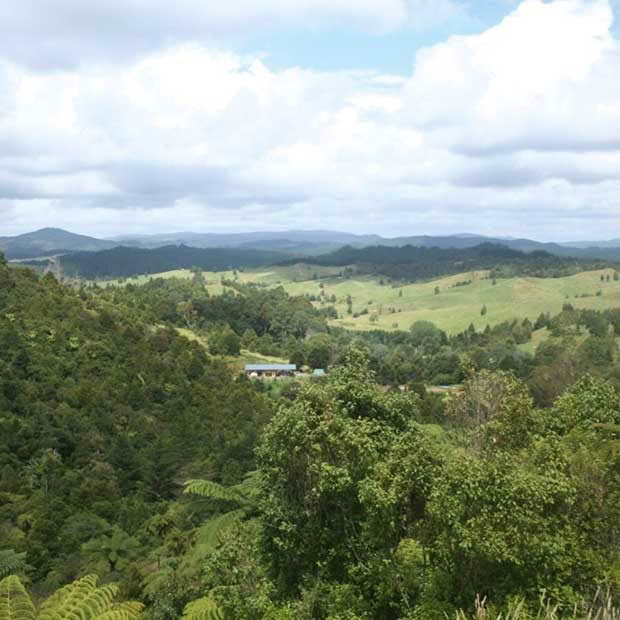Polly Greeks’ Blog: New horizons
Polly and co scan the globe for the perfect place to live overseas.
Words: Polly Greeks
The wish-list seemed neither long nor unreasonable — somewhere in nature, with a bustling little town or village nearby, interesting people to encounter and good food on offer.
“We already live there,” James observed drily, but we were meant to be leaving home.
Ever since we decided to spend this winter abroad, we have been scouring guidebooks searching for that special location. Our eagerness to revisit Peru dampened once flight costs were revealed. Turning to Asia, we grew misty-eyed recalling old haunts, but a decade or two is a long time when globalization’s at work and nostalgia gave way to dismay as we YouTubed the locales we had loved.
In the Himalayas, sealed roads ran where dirt paths once ambled. A swarm of scooters and cars seemed to dominate once-tranquil temple towns; towering hotels blockaded beaches and mountain views. Alleyways had been widened into neon-lit streets dedicated to pouring cheap alcohol down the mouths of package-tour travelers.

Polly recalls her time visiting Himalayan villages.
Supermarkets and malls had unfurled their shiny-white sterility close to markets, while sleepy lakes, rivers and bays had jolted into the 21st century with resorts, thrill-seeker amusements, cruise ships and people. Hordes and hordes of people.
The heaving mass of humanity appeared to be smothering Asia beneath concrete, exhaust fumes and high rises.
“It’s getting crowded out there,” our local librarian agreed as he issued me with yet another stack of guidebooks to sift through. An avid traveler of the old guard, he lamented how little is left of the unique flavour of the Asia he once visited.
The irony is laughable; the hypocrisy exquisite. How can I bemoan the rise of tourism while scanning the globe for a travel destination? What gives me the right to exploration and not the resort patrons, the burgeoning middle classes of Asia, or the Europeans wanting a cheap one-week getaway?
“I want to experience otherness, people living with the land,” I respond feebly. Development somehow equates with making places both homogeneous and soulless.
But even this smacks of double standards. I’ve visited Himalayan villages the week before electricity was due to arrive and seen the excitement. Having lived for a long time without them, I know how much easier life gets with the addition of a washing machine, indoor shower and running water.
Do I wish for certain regions to remain in medieval times just so myself and select others can come and marvel?
Those timeless villages still exist, I’ve discovered, but only because of extreme remoteness. I eye my family doubtfully, trying to imagine them hiking for a week over mountains.

“I want walls to our place,” James tells me sternly as if I’m planning to ensconce us all in a cave. “It needs to be a proper house. With running water.”
And I will need electricity for my laptop. Half the reason we’re going is so I can finish writing my book. We live in a lovely, forest-ringed comfort zone but it’s important to emerge from one’s security from time to time and plunge into the bigger picture.
Four-year-old Zendo might be too young to remember the journey, but seven-year-old Vita will. Like dunking someone sleepy in the sea, immersing her in an alien culture will widen her eyes and reveal how much like herself, the “other” is.
Familiarity with the world gives a feeling of ease to a traveler. Let that be a gift to our kids from James and me. We’ve chosen Indonesia as our destination.
“But it’s so discovered,” a friend mourns.
I shrug. The world’s changed, and it will always be changing. I could cling to my idealized notion of what travel is based on experiences from 20 years ago, but that’s no equation for happiness.
People who know how to look, discover authentic experiences wherever they go.
And if our family needs to join the multitudes on buzzing scooters to find them, count us in.
Love this story? Subscribe now!
 This article first appeared in NZ Life & Leisure Magazine.
This article first appeared in NZ Life & Leisure Magazine.
